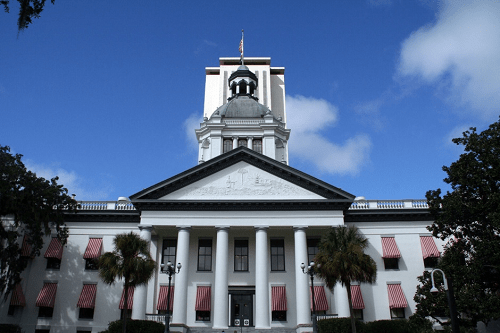Focus on the Legislature
By John Haughey | The Center Square
The Florida House on Wednesday is expected to approve House Bill 3, which would prohibit local governments from imposing occupational licensing and business regulations.
The Senate companion bill, Senate Bill 1336, sponsored by Sen. Keith Perry, R-Gainesville, however, needed three hearings to pass through one panel and failed to get an endorsement from the Senate’s Innovation, Industry and Technology Committee.
Like HB 3, filed by Rep. Michael Grant, R-Port Charlotte, SB 1336 would prohibit local governments from imposing new business regulations and automatically sunsets those now on the books by July 1, 2022.
The bills preclude local governments from requiring a license for painting; flooring; cabinetry; interior remodeling; driveway or tennis court installation; decorative stone, tile, marble, granite or terrazzo installation; plastering; stuccoing; caulking; canvas awning installation; and ornamental iron installation. All licensing would be the purview of the state’s Department of Business and Professional Regulation (DBPR).
Under the bills, cities and counties still could issue licenses for occupations such as plumbing, pipefitting, HVAC technicians, electrical and alarm system trades, but cannot add new ones.
On Monday, two southwest Florida Republicans raised questions about the bill that Perry, a contractor, could not answer, prompting him to table the measure.
Sen. Lizbeth Benacquisto, R-Fort Myers, questioned whether the bill would degrade protections for homeowners and businesses in the wake of a hurricane and said local officials are best situated to provide those assurances.
Perry said the state adequately can meet that need and there always will be those who “are going to act outside the law” regardless of what laws the Legislature adopts.
Sen. Kathleen Passidomo, R-Naples, asked questions along a similar track, saying she was uncertain how a consumer would get recourse without assistance from local contractor boards.
“Now a consumer could file a complaint with a local licensing board and at least get a hearing,” Passidomo said.
Perry acknowledged the bill does not contemplate “consumer protections” and said he would address them with a revised proposal when the committee meets next week.
The measures are supported by business interests and Americans For Prosperity, which maintains nationwide licensing regulations cost 2 million jobs, $7.1 billion in “deadweight economic losses” and $197.3 billion in “misallocated resources” annually.
The DBPR announced Jan. 31 that “business and occupational license populations” increased in 2019.
“The increase in real estate licenses, construction licenses, and hotel and restaurant licenses over the past year shows there is strengthening demand for real estate transactions and more housing, traveling and dining options for Floridians and visitors to our state,” DBPR Secretary Halsey Beshears said. “Our economy continues to improve thanks to Gov. DeSantis’ leadership and the agency’s initiatives to streamline processes and provide better online services for license holders.”
Occupational licenses for the real estate professions increased 2.7 percent, from 405,459 in 2018 to 416,710 in 2019. Similarly, occupational licenses for real estate appraisers increased by 3.2 percent, from 8,429 to 8,701 during the same time period.
The DBPR took over Florida’s occupational real estate licensing last year.
Occupational licenses for the construction profession increased 5.6 percent, from 87,264 in 2018 to 92,188 in 2019. General contractor licenses represented 32,446 of the total licenses, up 1,656 from the prior year, according to the DBPR.
Business licenses for public foodservice and lodging establishments increased 4.1 percent, from 100,688 in 2018 to 104,905 in 2019, the DBPR reported

